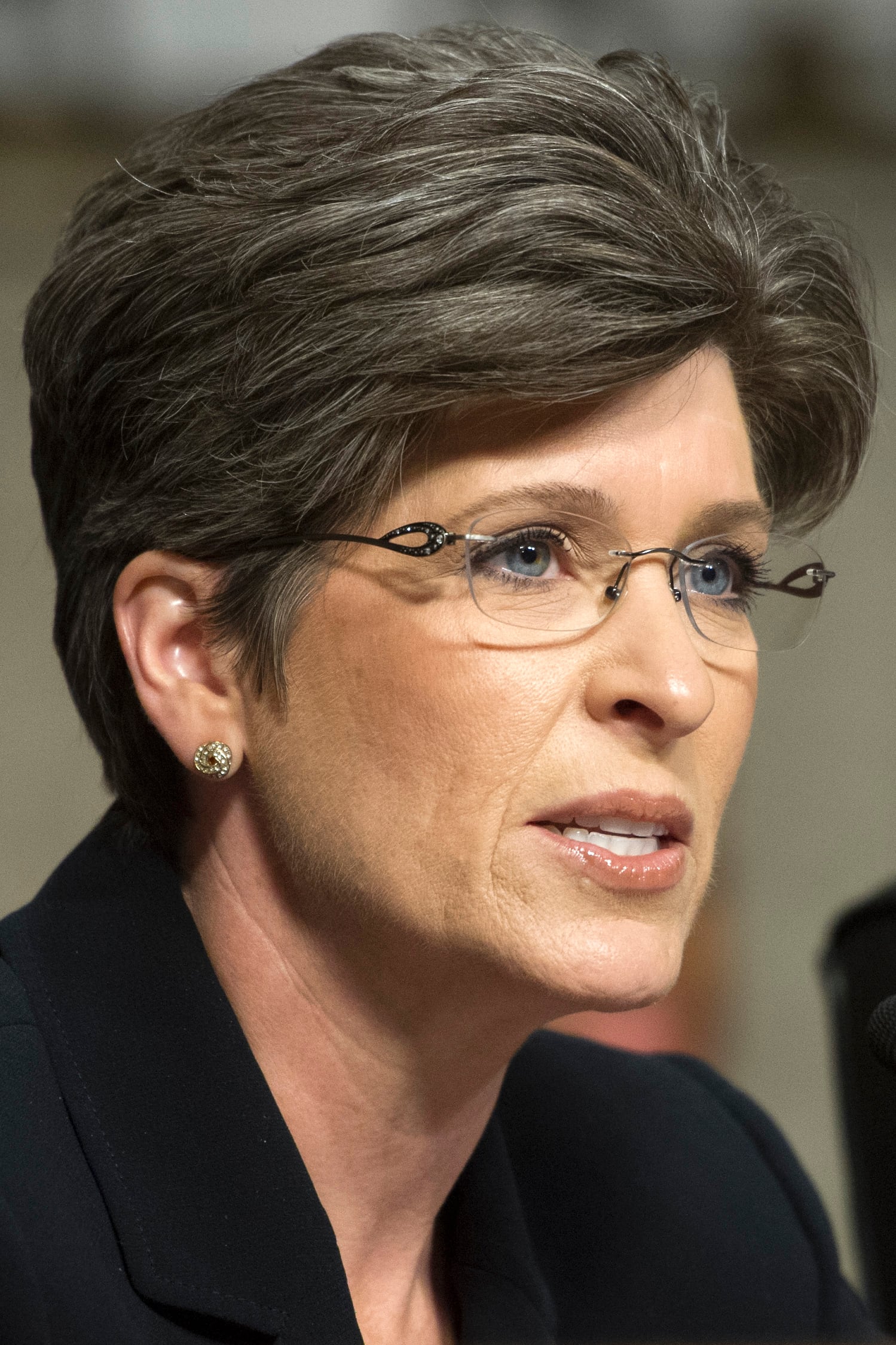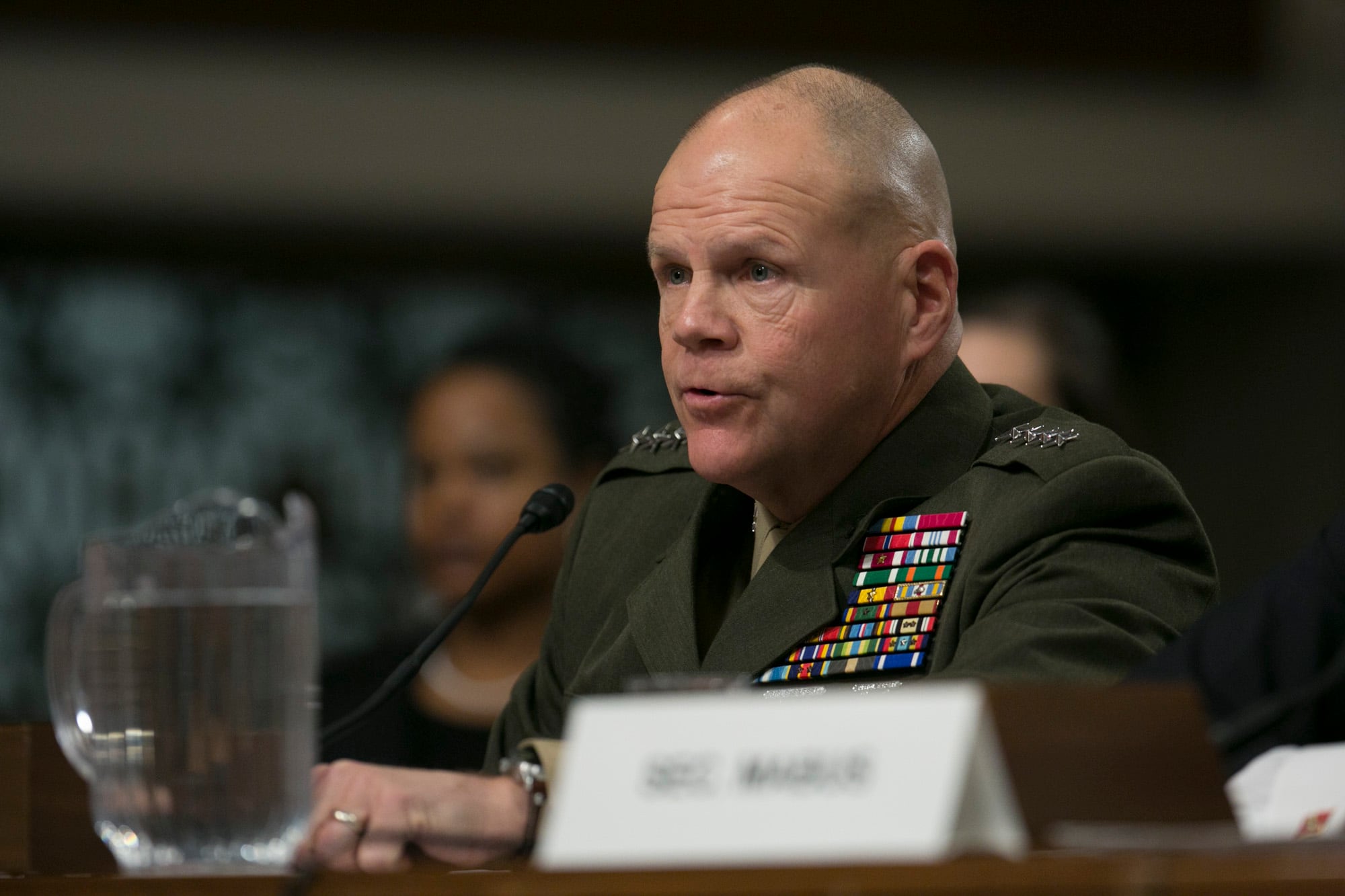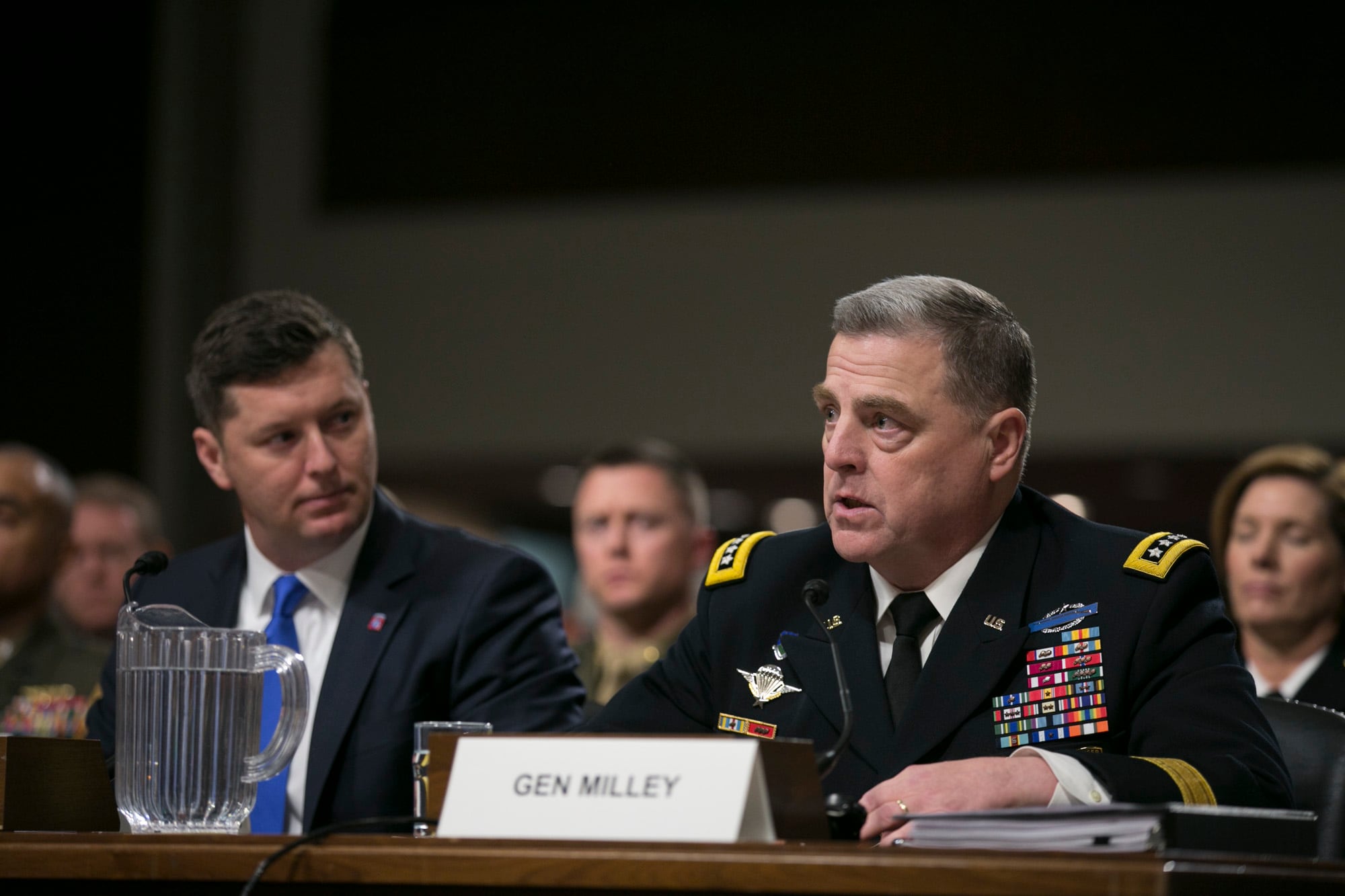Military women are headed into combat posts. But that's just the start of their fighting.
As the military moves towards opening all jobs to all troops, regardless of gender, both advocates and critics on Capitol Hill are frustrated by the unanswered questions surrounding when the changes will happen, how they'll be put in place and what side effects the massive cultural change will have on the armed services.
Among the unexplored, potential problems worrying lawmakers: Will job standards be lowered? Are military leaders ready and accepting of the change? Will women be required to register for the draft now?
Defense officials for the last three years have been studying and preparing for full integration of women into front-line and infantry units, with the stated goal of filling all military jobs with the "best qualified and most capable personnel" regardless of gender.
That work culminated in a December announcement by Defense Secretary Ash Carter, who promised all of the services will start their implementation plans by April 1. In less than two months, about 220,000 jobs never before open to women will be potential new landing spots.
"They'll be allowed to drive tanks, fire mortars and lead infantry soldiers into combat," Carter boasted a Pentagon press conference in December. "They'll be able to serve as Army Rangers and Green Berets, Navy SEALs, Marine Corps infantry, Air Force parajumpers, and everything else that was previously open only to men."
The April 1 deadline is only the start of this process. Army and Marine Corps leaders cautioned senators in early February this week that it won’t be a quick one.
Army Chief of Staff General Mark Milley said even with the start of work in April, women likely won’t even start infantry and armored basic training until early fall. Acting Army Secretary Patrick Murphy told members of the Senate Armed Services Committee that "full integration will likely take several years, both to adjust the culture and to grow individual skills."
Beyond that, the timeline is unclear. Advocates worry that's a sign of continued foot dragging by senior military leaders opposed to such change, on getting women into combat roles, even after more than 14 years of war in which where female service members bore a sizable share of the fighting.
"I fear that we're in this kind of long-term resistance mode," said Ellen Haring, retired Army colonel and a program director with Women in International Security. "Delays, requirements for additional studies … for me, that's frustrating, and I'm sure it is for any women across the services looking for those jobs today."
But some lawmakers worry the services are moving too quickly.
Sen. Joni Ernst, R-Iowa — a retired Army Guard lieutenant colonel and the only female veteran serving in the Senate — said she supports opening all the jobs but said it could take a generation before real integration occurs.
"This has been pushed quite rapidly by the administration, by the secretary of defense," she said. "Not having well-thought-through implementation plans that have been thoroughly vetted could end up setting women back even further, instead of advancing them."
"We need to make sure we have thought through this," Ernst said.
Job standards
Ernst emphasizes that she "fully supports" opening all combat jobs to women. Her 22 years in the military included a deployment to Kuwait and Iraq in 2003, and she says she wishes she had a wider range of opportunities during her career.
But she also said the top concern she hears from men and women in the ranks is the potential for watering down standards to help women qualify for combat jobs, a move that could risk readiness and safety.
Military leaders have repeatedly promised that won't happen.

Senate Armed Services Committee member Sen. Joni Ernst, R-Iowa questions a witness on Capitol Hill in Washington, Tuesday, Feb. 2, 2016, during the committee's hearing to examine the implementation of the decision to open all ground combat units to women.
Photo Credit: Cliff Owen/AP
"Standards can never be lowered for any group or any job," Navy Secretary of the Navy Ray Mabus promised senators this week. "Standards will evolve as threats evolve, but they will evolve for everyone equally.
"For those who want to serve in these trying MOSs, these high standards will not make it easy, nor should they. But every person will have the opportunity."
In the last year alone, more than 200 women have made it through Marine infantry school and three women have graduated from the prestigious Army Ranger training.
Military officials have repeatedly insisted that no standards were changed in those classes, and bristled at critics who claim the accomplishments had more to do with political correctness than actual merit.
At a Service Women’s Action Network event in February Thursday, advocates warned that even the hint of quotas or softer standards for women could have devastating effects, not just for readiness but for military culture.
"When you have women underperform on the rifle range as recruits, and that gets accepted for decades, that says something," said Marine Lt. Col. Kate Germano, a SWAN fellow and a frequent critic of Marine Corps' expectations for women in the ranks.
"That becomes the norm. A lot of our assumptions today about what women can do [in the military] come because women have been allowed to underperform.
But lawmakers remain skeptical that things won't change if women struggle to carry heavier loads or fail to reach physical fitness benchmarks.
Drafts of the services' implementation plans for putting women in combat jobs — including new, gender-neutral standards for those roles — have yet to be circulated around Capitol Hill. And Sen. Roger Wicker, R-Miss., warned that even if those plans are solid, there's no guarantee they won't change.
"Five years from now, 10 years from now, if we don't have successful graduations from this physically demanding program, it's hard to imagine that this conversation won't take a different tone," he told Mabus. "I don't see how we can guarantee that in the future these standards will not be diminished."
Leadership concerns
Multiple Republicans in Congress have accused the Obama administration officials of forcing a quick adoption of the changes on a reluctant fighting force especially after a Marine Corps study last summer showed shortcomings in mixed-gender combat teams.
Marine Corps leaders had asked for an exception to integration in infantry units, machine gunner posts, fire support reconnaissance roles and several other jobs. Carter rejected that in his December announcement, saying "we are a joint force, and I have decided to make a decision which applies to the entire force."
When asked about that decision by lawmakers, Marine Commandant Gen. Robert Neller said his service the Corps has moved past it and is working towards the April deadline.

Commandant of the Marine Corps General Robert Neller declines to give opening statements to the Senate Armed Services Committee on Capitol Hill Feb. 2, 2015. The committee brought in military leaders to discuss the integration of women in the military. The committee brought in military leaders to discuss the integration of women in the military.
Photo Credit: Daniel Woolfolk/Staff
"We have established a process to where any Marine who wants to serve in these physically demanding [jobs] has to meet a certain standard," Neller said. "We will see where the chips fall. Our hope is that everyone is successful. But hope is not a course of action on the battlefield."
The general's perceived lack of enthusiasm worried many advocates.
"Tone is everything," Germano said. "If you're at the bottom of the pyramid, and you're thinking you can drag your feet on integration, when the top generals tell you 'I know this can be done now,' it sets the tone. If you don't hear that, it complicates things."
Last year, officials from the RAND Corporation conducted a study with Marine Corps officials on keys to successful implementation of cultural changes such as opening combat roles to women. At the top was the need for sustained, focused leadership.
"You can't just integrate and say 'OK, we're done,'" said Agnes Shaefer, senior political scientist with the group. "As they put these policies in place, they need to be thinking about long-term issues, especially career progression. Small unit dynamics, culture and discipline need to be monitored."
Marine Corps officials have received permission to continue training male and female recruits separately, a concession by Pentagon leaders on those lingering concerns about the possible effects on morale and readiness.
When pressed by senators, Neller admitted he still has doubts about the effects of the change.
"I have concerns about retention. I have concerns about injury rates. I have concerns about propensity to re-enlist, career progression," he said. "I have concerns about what's gonna happen in the — if the numbers are low, which they probably will be at the beginning.
"But I think we have a plan in place to where we can monitor that."
Details of that plan still haven't been released. Critics of the early drafts leaked from the Pentagon have said the documents contain a lot of technical changes and procedural information, but very little on the philosophy behind opening all jobs to women and no statements of support from Marine Corps leaders.
Selective Service
One issue being thrust to the forefront sooner is whether women should be required to register for the draft.
The Selective Service System currently requires all men ages 18 to 26 to register for possible involuntary military service. Women have always been exempt, and past legal challenges have pointed to the battlefield restrictions placed on them as justification.
But with that issue now disappearing, both Milley and Neller told lawmakers that they believe women should be required to register. Mabus and Murphy were more cautious, saying the change should start broader debate on the role of Selective Service moving ahead.

Chief of Staff of the Army Mark Milley speaks to the Senate Armed Services Committee on Capitol Hill as Acting Secretary of the Army Patrick Murphy looks on Feb. 2, 2015. The committee brought in military leaders to discuss the integration of women in the military.
Photo Credit: Daniel Woolfolk/Staff
Several presidential candidates have already weighed in on the issue. Former Florida Gov. Jeb Bush and Florida Sen. Marco Rubio have both backed the idea of opening the draft to women, while Texas Sen. Ted Cruz has vigorously opposed the proposal.
The Ernst said she thinks that’s an issue that should have been broached months ago, once the White House decided to move towards opening all military jobs, Ernst said.
"Now the administration has dropped that barrier … so I think the administration needs to take ownership and present a recommendation to Congress," she said. "And it needs to be soon. They wanted these plans by the first of April."
Some House members are already working to force the president's hand.
On Thursday, Republican Reps. Duncan Hunter of California and Ryan Zinke of Montana — both veterans of the Iraq war — introduced the "draft our daughters" act, which requires all eligible women to register for the draft within 90 days of the opening all combat specialties opening.
Hunter said he hopes to make the issue a point of debate in the annual defense authorization bill discussion, although he also hinted he might not support his own proposal.
"It's wrong and irresponsible to make wholesale changes to the way America fights its wars without the American people having a say on whether their daughters and sisters will be on the front lines of combat," he said in a statement.
"This discussion should have occurred before decision making of any type, but the fact that it didn't now compels Congress to take a honest and thorough look at the issue."
White House officials have deferred questions on how Selective Service might be changed to the Pentagon. Defense officials say they're studying the issue.
Ernst said she worries that's indicative of a lack of thought in the overall process so far.
"In my mind, there was a hurry to get this done, without thinking about the repercussions," she said. "I have confidence in what the military leadership is doing. But I don't have the same confidence in the civilian leadership."
Leo Shane III covers Congress, Veterans Affairs and the White House for Military Times. He can be reached at lshane@militarytimes.com.
Leo covers Congress, Veterans Affairs and the White House for Military Times. He has covered Washington, D.C. since 2004, focusing on military personnel and veterans policies. His work has earned numerous honors, including a 2009 Polk award, a 2010 National Headliner Award, the IAVA Leadership in Journalism award and the VFW News Media award.





